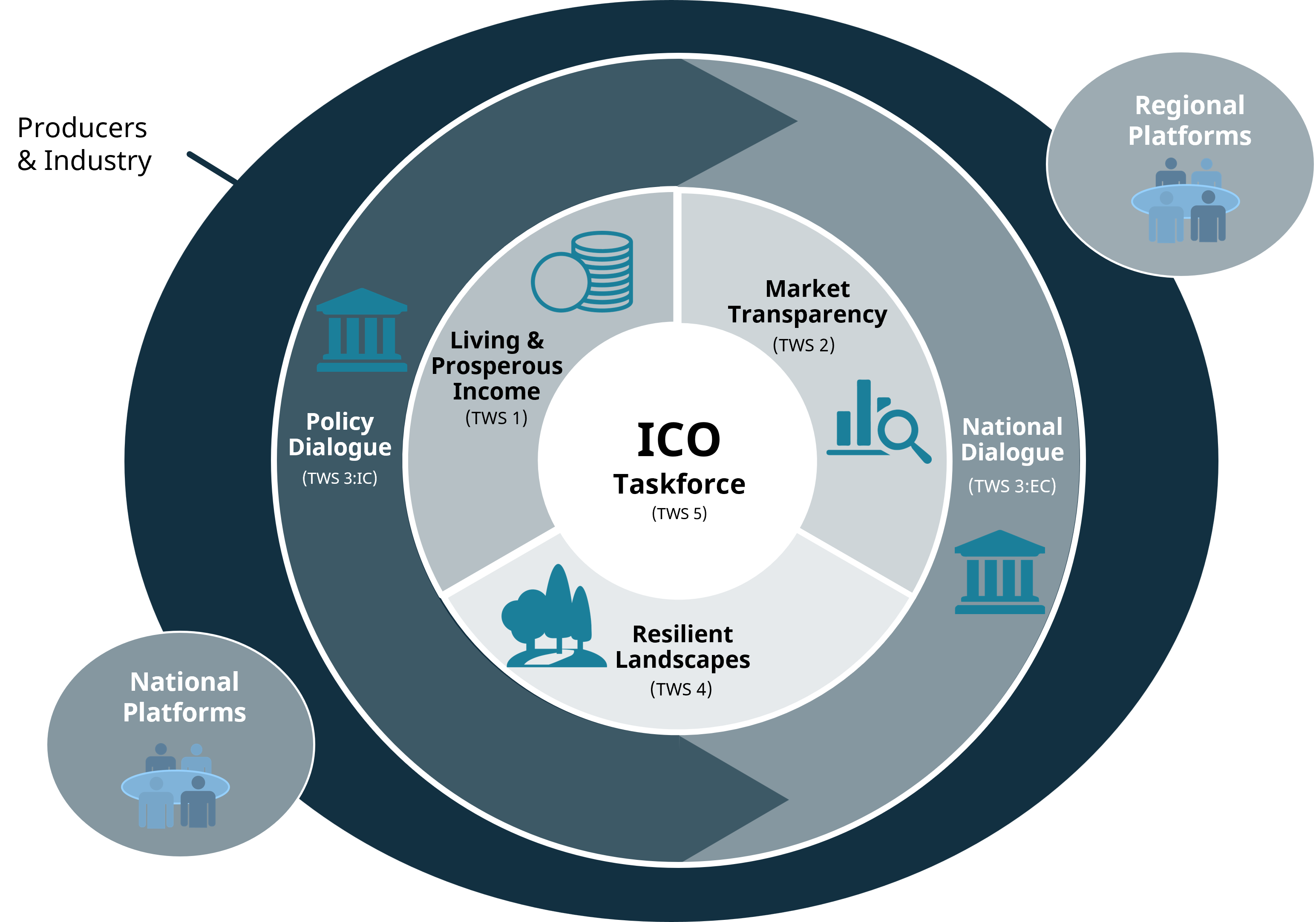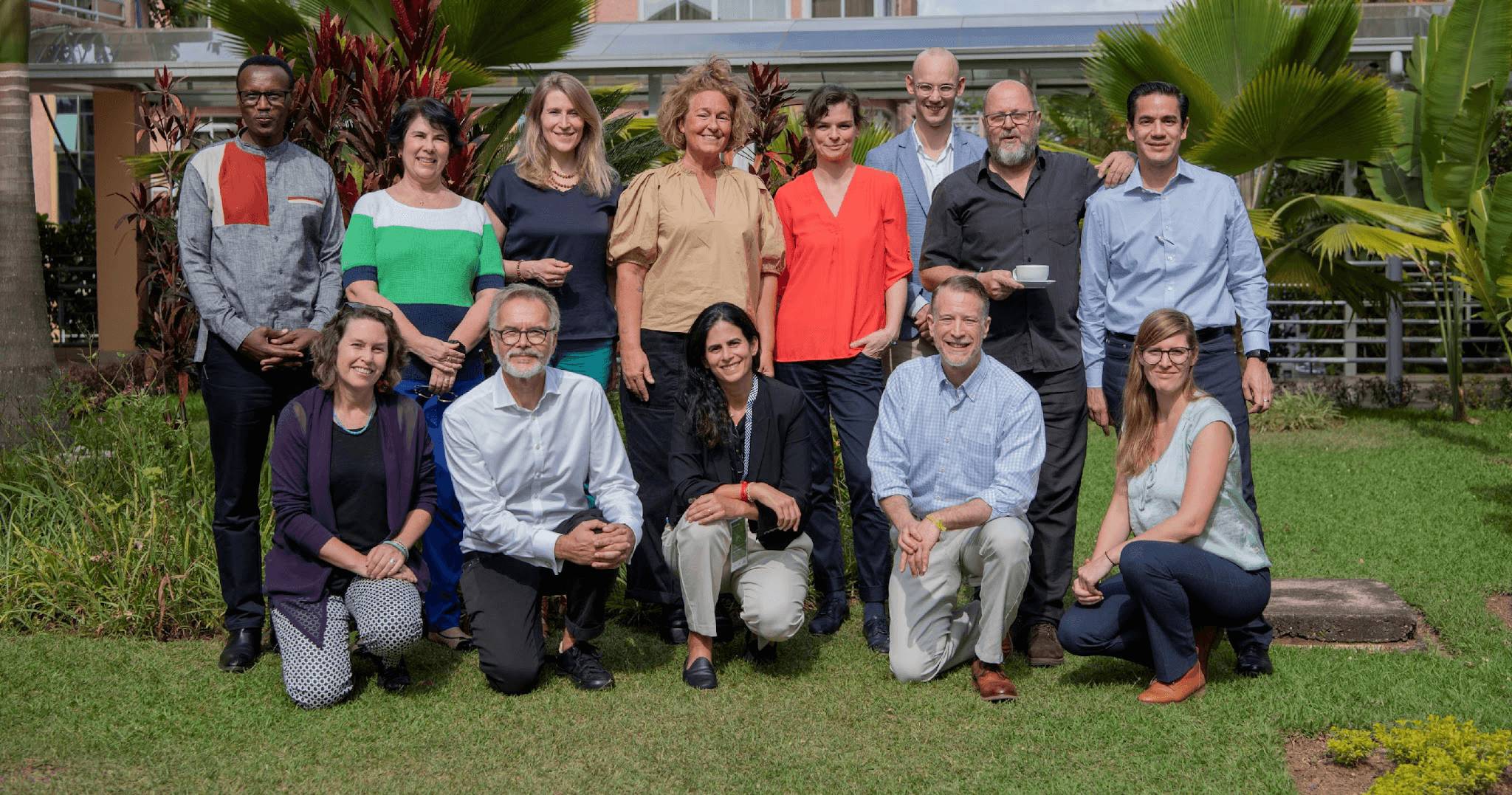
Technical Workstreams

Technical Workstreams (TWS) are organized according to the thematic areas
as identified by the Resolution 465/London Declaration and are expected
to produce technical inputs and reports to support the
implementation of Task Force commitments and concrete actions.
The Technical Workstreams 1, 2, and 4, focusing on Living and Prosperous Income (TWS1), Market Transparency (TWS2), and Resilient Landscapes (TWS4), respectively, support the sector to more effectively manage sustainability with well-informed and data-based decision-making. The initial focal areas are living income benchmarks and gaps, the costs of production, income & value chain efficiency, and landscape assessment and planning.
Now, sectoral institutions can better collect and analyze their own vital data with the tools, methods & approaches, and capacity building that the Workstreams provide. Decision-makers across the board – from farmers to industry to governments – benefit from lower costs of reliable information and gain a better understanding of the socio-economic and environmental issues related to their coffee sector. Additionally, the science-based insights from this work will support optimal output allocation and may help unlock unprecedented investment by international private sector and donor community when effective targeting and impact can be demonstrated.

The three facilitators of the workstream groups, Sustainable Food Lab/ Agrofuturo Global, Committee on Sustainability Assessment (COSA), and Conservation International (CI)/ Sustainable Coffee Challenge (SCC) provide valuable guidance and support to institutions and key stakeholders in the countries that invite their support. They facilitate an internal dialogue to identify effective ways of utilizing the tools and methodologies and selecting local partners to conduct the work. The partners then adapt these output to the local context and carry out fieldwork with the facilitators’ assistance.
The facilitators establish the foundations and guidance to kick start the process but the ongoing work and outputs of the technical workstreams is a joint responsibility of all Task Force members and partners.
The processes and resulting outcomes enhance local capacity to provide the knowledge and insights for governments, companies, and producer-oriented institutions to better facilitate sector development and identify effective ways of collaborating. The ultimate objective is to enhance local capacity to employ reliable data and insights.
The insights gained from the work is designed to also feed into the multi-stakeholder national dialogues and related technical work of the twin policy-oriented facets of Technical Workstream 3: Sector Transformation Exporting Countries and Technical Workstream 3: Policies & Institutions Importing Countries. The latter is facilitated by the EU DG International Partnerships (INTPA) and the former by the Global Coffee Platform and the United Nations Development Programme.
Workstream 3 thus contributes to the transparent understanding of the impact of policies on producers and the industry. The results of these dialogues will also help shape global policy in the future to collaboratively achieve the intended outcomes.
Regional Platforms represented by Promecafe in Mesoamerica, Inter African Coffee Organization (IACO) in Africa, and ASEAN Coffee Federation (ACF) in Southeast Asia all play an important coordinating role as they enhance the flow of knowledge and help foment the use of the tools and methodologies among their respective member countries; as well as identifying common challenges and responses needed at the national, regional and international/sector level.
National and subnational platforms



National and subnational platforms are coordination spaces that have been created by many countries to address challenges in the coffee sector and promote cooperation. TWS assessments also bring together key actors to implement and validate strategies, building trust and identifying roles to address challenges. Wherever possible, the Coffee Public Private Task Force will engage with and support the development of these collaborations, from directly linking to the platform building work of TWS3 Exporting Countries or supporting the national platforms where TWS3 is not yet active. This engagement will connect national efforts to regional and international levels to address issues that go beyond the national influence, creating a supportive policy framework (in coordination with TWS3 Importing Countries) for a resilient and prosperous global coffee sector.
This Global Knowledge Hub provides countries easy access to the tools and methodologies as well as all the outputs generated by the work for continuous use and improvement.





